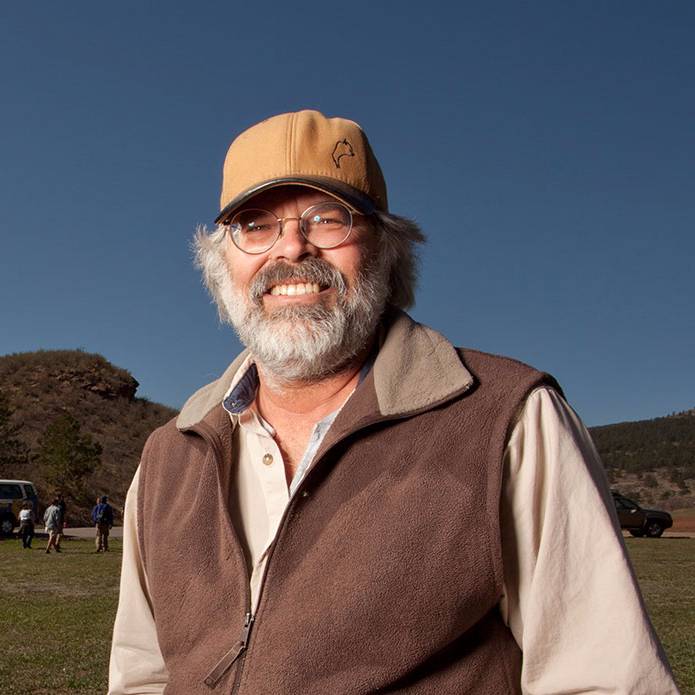Practical Training, Marketable Skills
In UNC’s Earth and Atmospheric Sciences bachelor’s degree program, you’ll learn by doing. Our program stands out for its hands-on field work and research opportunities, providing you with advanced training and direct experience that’s often reserved for graduate students. You won’t merely study science you’ll actively practice it.
Our bachelor of science degree in Earth and Atmospheric Sciences includes emphasis areas in environmental earth sciences, geology, meteorology and secondary teaching. All four concentrations feature small classes led by Ph.D. faculty, providing you with extraordinary access to professors. You’ll also get plenty of practical, hands-on experience via field trips, professional internships and collaborative research opportunities that bolster your resume for job and graduate school applications. With our location in one of the world’s most environmentally dynamic regions, UNC can provide a first-rate educational experience that prepares you to excel in graduate school or the work force.
Degree Options
Environmental Earth Sciences B.S.
Gain a comprehensive environmental sciences education that covers biology, chemistry, ecology, geology, groundwater, meteorology, oceanography and more. This versatile degree prepares you for graduate study or immediate employment in a wide range of fields. You’ll get practical, hands-on training in scientific writing, geographic information systems (GIS), global positioning systems (GPS) and other specialized skills.
Environmental Earth Sciences B.S. – Geology Concentration
Study the forces that shape the earth, while preparing for careers and graduate programs involving energy, mining, natural resources, climate change and related subject areas. You’ll take field trips throughout the West, work with advanced instrumentation and analytical technology and enjoy lots of faculty attention (including internship and research opportunities).
Environmental Earth Sciences B.S. – Licensure: Science (Grades 6-12)
Develop a broad foundation of science knowledge and learn the art of classroom instruction and management. You’ll complete a student-teaching practicum and get full preparation for state certification as a licensed science teacher for grades 6 through 12. UNC is Colorado’s top educator of secondary science teachers.
Climate Science B.S.
The multidisciplinary Climate Science major is intended for individuals who wish to pursue careers with responsibilities that include climate monitoring, and management, as well as climate change adaptation and mitigation. Students may prepare for entry-level positions in the environmental industry or governmental agencies, environmental consulting, non-profits or NGO’s, or for graduate education in such fields as climate science, climate risk assessment and consulting, environmental public policy and environmental law. The program also is well suited for anyone with a serious interest in the scientific aspect of climate science issues.
Climate Science B.S. – Meteorology Concentration
Meet the certification requirements for the American Meteorological Society (AMS) and National Weather Association (NWA). You’ll get hands-on experience with state-of-the-art weather forecasting models and technology, graduating with the skills and experience to land a good entry-level job or graduate school placement in meteorology. UNC students consistently achieve top-10 placement in the national weather forecasting contest and other national scholarship and research programs.
Minor Option
Earth Sciences Minor
A minor in Earth Sciences pairs well with a range of majors, including Anthropology, Biology, Business, Chemistry, Communications, Economics, Environmental Sustainability, Geography, Journalism, Mathematics, Physics and Recreation and Tourism. Working with your minor advisor, you’ll choose 20 credits from Astronomy (AST), Earth Science (ESCI), Geology (GEOL), Meteorology (MET) and Oceanography (OCN) prefixes.
Your Future in Earth Sciences
National policy makers and economic leaders have placed high priority on expanding America’s capacities in scientific research and natural resource development. As a result, UNC's Earth Sciences degree provides you with strong opportunities no matter which emphasis area you choose. Due to current trends and transitions in energy development, climate research, resource conservation and numerous other issues, you’ll find high demand for your skills in a broad range of industries and education venues.
Consider UNC’s B.S. in Earth and Atmospheric Sciences if you:
- Are interested in applied science
- Enjoy field work
- Prefer small classes and faculty mentorship
- Hands-on research and internship opportunities
You’ll learn:
- Environmental monitoring and regulation
- Natural resource economics and management
- Earth systems and interdependencies
- Scientific writing
- Weather and climate
- Testing and analytical technologies
Sample Courses:
- Physical Geology
- Ecology
- Climatology
- Oceanography
- Introduction to GIS and GPS
Beyond the Classroom
At UNC, the classroom is as vast and wide open as the West. Our bachelor’s degree in Earth Sciences provides outstanding fieldwork and research opportunities. You’ll enjoy opportunities to travel throughout the Great Plains, Rocky Mountains and desert Southwest. In addition, you may be able to assist Ph.D. faculty on research projects, an opportunity that few undergraduate programs can offer. UNC has very active student clubs and campus chapters of professional organizations, enabling you to meet like-minded students and further explore your academic and career interests in Earth Sciences.
Where can your degree take you?
- Graduate school in multiple disciplines
- Science teacher for grades 7-12
- Government agency involved in environmental research, regulation or monitoring
- Environmental and weather forecasting firms or agencies
- Jobs in the natural resource sector (including energy and mining)
+
Ready for what's next? Here's what you need to know.
If there's anything else we can do, be sure to connect with us. We're only a shout away.
Still not completely sold? We understand. Here's more information on cost and aid and how to apply.




